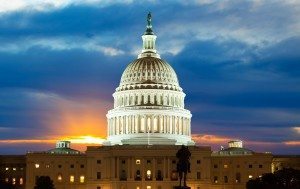Senate to Hear Legislation on Sanctuary Cities
On October 7th, 2015 Senator David Vitter (R-LA) introduced new legislation, Senate Bill 2146, the Stop Sanctuary Policies and Protect Americans Act. The precatory comments frame the legislative purpose as “ [to] hold sanctuary jurisdictions accountable for defying Federal law, to increase penalties for individuals who illegally reenter the United States after being removed, and to provide liability protection for State and local law enforcement who cooperate with Federal law enforcement and for other purposes.” S.2146
There is no legal definition of “sanctuary jurisdiction”; the term, together with “sanctuary city,” rather has been loosely applied, particularly of late, to those political subdivisions and municipalities, that by either policy, edict, or legislation, do not permit municipal funds or resources expended to enforce federal immigration laws, typically by not allowing police or municipal employees to inquire about an individual’s immigration status.
San Francisco, for example, passed an ordinance in 1989 banning officials from enforcing immigration laws or asking about immigration status when arresting an individual, unless required by law or court order. Today, San Francisco is one of more than 200 jurisdictions popularly considered “sanctuary cities.”
“When you use the term ‘sanctuary city,’ it implies a policy decision that’s been made about how the city should engage with the immigrant community,” said Jennie Pasquarella, a staff attorney with the American Civil Liberties Union of Southern California.
Senator Vitter’s Senate Bill 2146 would punish those political subdivisions and municipalities deemed “sanctuary jurisdictions” in several ways.
Primarily, SB 2146 would render sanctuary jurisdictions ineligible for certain federal funding, including the State Criminal Alien Assistance Program (SCAAP), which can be significant. For example, the New York State Department of Correctional Services, in a report written February 2011 noted that“[t]he Department has received a total of over $600 million under SCAAP during the 16 years that SCAAP has been in existence.”
Additionally, SB2146 requires the Department of Homeland Security and the Department of Justice to publish a list of sanctuary jurisdictions as well as the number of detainers and notifications requests that have been issued to and ignored by each sanctuary jurisdiction.
This measure is expected to have a procedural vote on October 20, 2015.
Recommended Articles

SCOTUS clarified that a legal permanent resident alien can be physically in the U.S., commit a criminal offense, and still be inadmissible.

Fifth Circuit: Former Informants Are Not Protected Group

The Secretary of Health and Human Services has asked the Pentagon to add 5,000 more beds for young people. During last year’s surge of undocumented persons, the military opened emergency shelters to house the migrants at bases in Oxnard, San Antonio and Ft. Sill, Oklahoma.

On September 26th, 2015 U.S. District Judge Dolly M. Gee granted final approval of the settlement in Franco v. Holder, paving the way for previously deported immigrants with severe mental disabilities to request to reopen their cases in Immigration Court, and if approved return to the United States.

The defense attorney has an affirmative duty to properly advise. It is not enough to say it is a “possibility” under those circumstances.

About Michael Harwin
Michael’s skill and experience have been recognized repeatedly. He holds an A-V 5/5 preeminent rating by Martindale Hubbell. He has been named one of the top lawyers in Arizona by Southwest Superlawyers, and one of the best lawyers in Tucson by Tucson Lifestyle Magazine. He also has been named one of the best lawyers in the United States by BestofUS.com , and given the highest rating possible by AVVO, 10/10 Superb. Amazon Books


